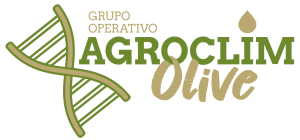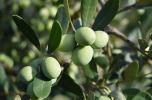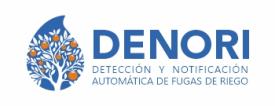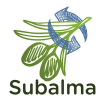
AGROCLIM-OLIVE Operational Group: Evaluation of new olive varieties adapted to more sustainable super-intensive systems in a context of low application of copper fungicides
- Type Operational group
- Status In progress
- Execution 2023 -2025
- Assigned Budget 299.824,00 €
- Scope Autonómico
- Autonomous community Andalucía
- Project website GO AGROCLIM-OLIVE
Abstract
Both the proposed improvement actions and the operation of the AgroClim-Olive project itself promote the following aspects:
- Sectoral impact. Global olive oil consumption is increasing due to its heart-health benefits. Spain, and specifically Andalusia, are world leaders in both traditional olive growing and super-intensive cultivation (FAOSTAT, 2019). Currently, there is a process of genetic erosion in the olive tree due to the trend toward using a limited number of highly productive varieties adapted to hedgerow cultivation. These high-density crops face significant problems of abiotic stress (soil salinization) and biotic stress (diseases particularly aggressive under the specific conditions described, anthracnose and canker), which are aggravated by the reduction in fungicide use that has been established in recent years. In this context, the results of this project would have an impact not only on production, but also on more sustainable production.
- Induced investment. The development of this project may involve other investments, such as creating an experimental hedgerow plantation under commercial production conditions to study, in this and future projects, the adaptation of genotypes to the conditions described. We are aware that, given the project's duration, it is impossible to collect data on oil production and quality, but the plantation we will carry out in section 1.2.3 will provide results of enormous interest to the sector.
- Job creation: This project will require the addition of technical personnel for its proper execution, as described in the budget breakdown.
- Environmental impact The improvement of the environmental impact of this project lies in the study and development of new sustainable (resistance inducers) and environmentally friendly treatments.
Description of activities
Work Plan
- Documentary phase Field or experimental phase
- 1.1.1. Identification and cataloging of local varieties and unique olive trees from the province of Jaén.
- 1.1.2. Ecogeographic characterization of olive varieties in Andalusia.
- 1.1.3. Selection and characterization of genotypes with high tolerance to salt stress: to improve irrigation water use.
- 1.1.4. Evaluation of resistance to Anthracnose and fungal species causing olive canker.
- 1.1.5. Induction of resistance to Colletotrichum spp.
- FINAL PROJECT REPORT WRITING PHASE
- 2.1 Description of the performance.
- 2.2 The reports will include the following content.
- 2.3 Deliverables.
- DISSEMINATION PHASE
Objectives
The general objectives of AgroClim-Olive are to protect the enormous genetic diversity of our most emblematic and strategic crop, as well as to evaluate and select the most resilient varieties in a changing agronomic and climatic context.
The AgroClim-olive project fits perfectly with the following objectives proposed in the call:
- Climate change mitigation and adaptation: the search for more resilient local varieties.
- Improving water and soil management: identifying genotypes highly tolerant to brackish water irrigation.
- Achieving more efficient use of agricultural water: genotypes tolerant to water-saline stress.
- Reduce or achieve efficient use of plant protection products: We will reduce dependence on copper by inducing resistance in plants and selecting genotypes that are more resistant to pathogens.
Results
Among the expected results of the AgroClim-Olive project we can highlight: .
- The protection of olive genetic resources, either ex situ through the incorporation of previously unidentified local varieties into the World Olive Germplasm Bank of the University of Córdoba (UCO); or in situ through the location and identification of unique olive trees.
- The characterization of the bioclimatic zone occupied by traditional olive varieties is essential for selecting those best adapted to their environment and new areas for expansion.
Identifying the world's most efficient olive varieties.
Contact information
- Coordinator/entity name: University of Córdoba
- Postal address: Avenida Medina Azahara, 5, 14071
- Coordinator/entity email: otri@uco.es
- Telephone: 957218196
Coordinators
- Universidad de Córdoba
Collaborators
- BALAM (juancarlos@balam.es)
- CITOLIVA (citoliva@citoliva.es)
- COAG (coagjaen@coagjaen.com)
Beneficiaries
- Universidad de Córdoba







